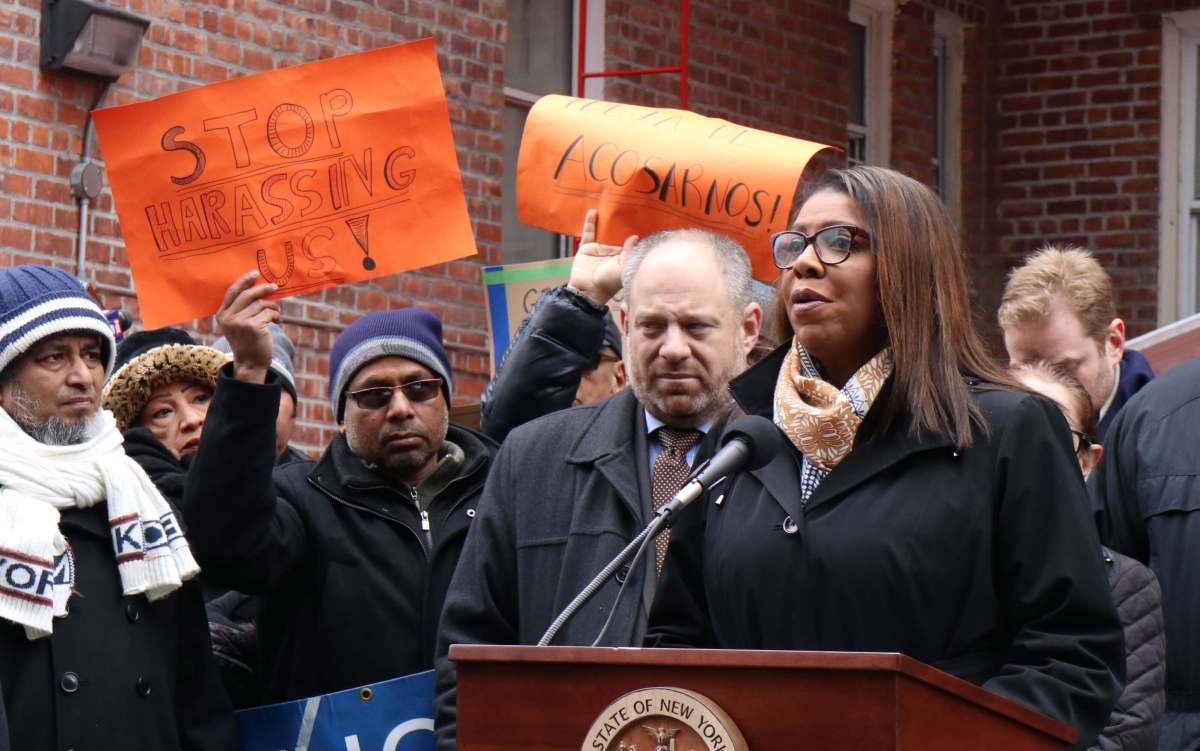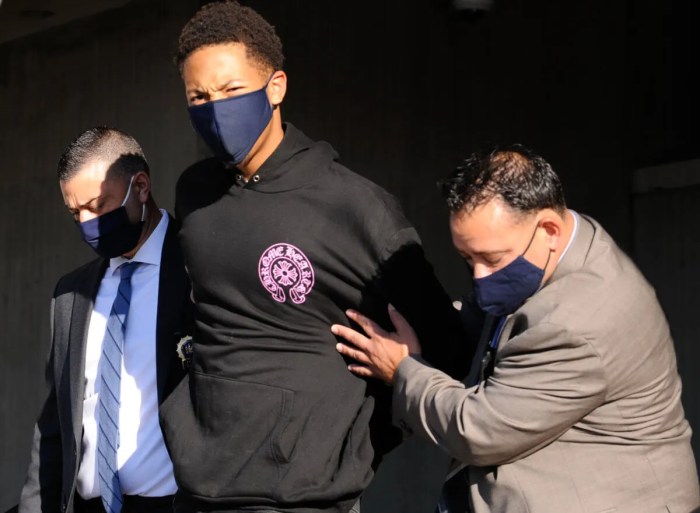A landlord who owns 58 buildings, totaling 2,500 rent-stabilized apartments, in Jamaica and the surrounding area is not only being sued by State Attorney General Letitia James but also faced a demonstration in southeast Queens for allegedly collecting illegal amounts of money from tenants.
Zara Realty, based at 166-07 Hillside Ave., is accused of charging tenants from 38 rent-stabilized buildings excessive fee, signing improper leases, illegally raising rents as well as denying tenant rights, James’ suit details.
The state Homes and Community Renewal (HRC) conducted a two-year investigation of Zara and found the business had a history of coercing tenants – the majority of whom being low-income – into paying illegal key money, room reservation fees, advanced rent, and excessive security deposits, according to the suit.
“For years, Zara Realty has engaged in an egregious pattern of tenant harassment and exploitation,” James said in a statement. “Evading our rent regulation laws and forcing low-income tenants to pay exorbitant fees for fake services is deception of the worst kind. This is a notice to all unscrupulous landlords who seek to hurt New Yorkers, we will not tolerate this behavior.”
On Friday, about 80 Zara tenants rallied against the Zara Realty in Jamaica including Chhaya CDC, a Jackson Heights-based organization that works to alleviate poverty issues in south Asian communities.
“This case brought against Zara Realty by Attorney General James and the Tenant Protection Unit represents a victory long in the making, and an important step towards housing justice,” Rima Begum, a tenant organizer for Chhaya CDC, said. “It represents a victory for all the tenants who live in Zara buildings, who endure atrocious conditions and harassment from their landlord. Many of our tenant leaders fight fearlessly against displacement every day and have waited a long time for Zara Realty to face justice.”
But Zara Realty played on its immigrant origins in its response to the allegations by claiming the suit was inaccurate and that the company had offered HRC its full cooperation over the last year of the two year probe.
“Zara Realty was founded by immigrants who came to this country penniless and achieved the American Dream,” the company said in a statement. “The allegations contained in this suit, many of them factually inaccurate, will be vigorously contested. Many of them also deal with highly complicated legal issues that are subject to various interpretations under the law, including conflicting judicial opinions.”
An additional statement from Begum challenged Zara’s claim of being in touch with immigrant struggles with the claim that the company had targeted their 35 to 40 percent of tenants who are Bangladeshi with limited English proficiency.
Begum said Zara tenants over the course of the last three years came to them reporting patterns of harassment, rent stabilization law violations and bringing frivolous lawsuits against renters.
Zara also said its use of obtaining Major Capital Improvement approval to raise rates on rent controlled buildings was in the interest of investing in their tenants.
The company claims it has a history of purchasing old, outdated buildings and providing modern housing to its tenants.
“Tenant harassment is illegal, and rarely do prosecutors act to protect tenants — but not today. Attorney General Letitia James is standing up for tenants in my district who for years have suffered harassment and abuse from a landlord notorious for its aggressive mistreatment of working people,” Councilman Rory Lancman said. “This is why we elect prosecutors — to hold the powerful accountable for their exploitation of the powerless.”
The suit additionally alleges that Zara used “Jasmine Homes, LLC” to move tenants into buildings it owned in order charge a broker fee which the law prohibits. They are also accused of charging an amount equal to three- to four-times the monthly rent for security deposits while the law states that deposits are limited to one months rent.
James also claims the company charged up to $200 for each new key after changing locks at the start of every new lease.
Some tenants allegedly paid up to $11,000 to move into a rent controlled unit.


































